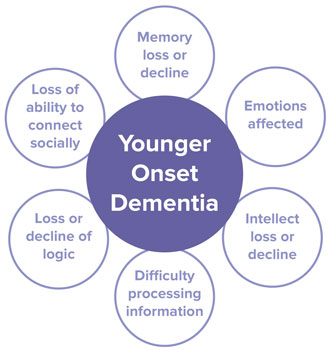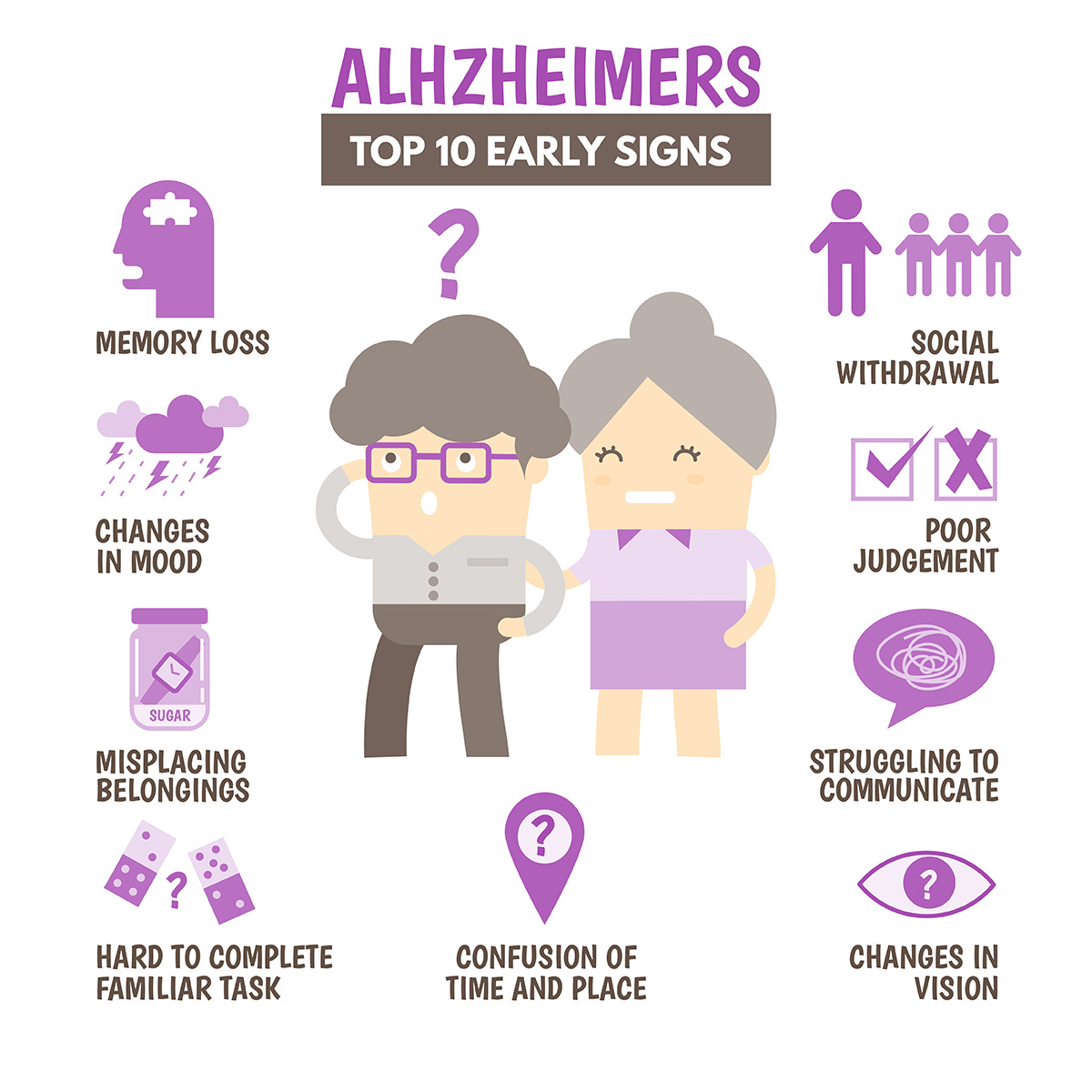Checklist: How to Safeguard Your Home Against Fall Risk for Seniors
Checklist: How to Safeguard Your Home Against Fall Risk for Seniors
Blog Article
Recognizing the Influence of Mental Deterioration on Daily Life and Caregiving
Mental deterioration affects day-to-day live in extensive means, influencing not just those detected yet additionally their caregivers. As cognitive decline advances, you may discover changes in communication and regular that obstacle both parties. Recognizing these shifts is necessary for preserving dignity and involvement. How do you adapt your caregiving approaches to sustain somebody traversing this complex journey? The responses could surprise you as we explore the subtleties of this experience.
The Phases of Mental Deterioration and Their Results on Day-to-day Live
As you browse the trip of mental deterioration, comprehending its phases can markedly impact just how you take care of day-to-day life. Mental deterioration generally proceeds with 3 main phases: early, center, and late.
Throughout the middle phase, you'll experience much more recognizable cognitive decline. Daily tasks could become difficult, and preserving your independence might need changes. Using tips and simplifying your setting can aid.
In the late phase, individuals usually need significant aid with everyday activities. Preparation for care comes to be necessary, concentrating on convenience and lifestyle. By recognizing these stages, you're far better equipped to react proactively, guaranteeing you or your enjoyed one can navigate the challenges with self-respect and grace.

Adjustments in Communication and Social Communication
Just how do adjustments in interaction affect your day-to-day communications as mental deterioration advances? As mental deterioration breakthroughs, you may observe that simple conversations become challenging. Words may escape you, or you might battle to locate the best phrases. This can lead to aggravation for both you and your enjoyed ones. Nonverbal signs, like motions or faces, come to be increasingly crucial.
You might find it much easier to attach with these ways rather than relying entirely on spoken language. Paying attention skills can also change; you could discover it more difficult to remember or follow discussions what was simply claimed (Vascular Dementia). This can cause misunderstandings or sensations of seclusion
Motivating perseverance and producing a helpful environment can assist. Involving in activities that promote link, like songs or art, can boost social communications. Remember, keeping connections is still feasible; it's just around adjusting to brand-new means of connecting.
Effect On Daily Routines and Activities
While maneuvering day-to-day regimens, you'll likely notice that jobs you once finished effortlessly become much more challenging as dementia advances. You might find on your own neglecting steps in familiar regimens or battling to recall where you positioned things.
Adjusting your atmosphere can help; for circumstances, identifying items or using lists can simplify tasks. Engaging in recurring, organized tasks can likewise offer convenience and a sense of success. Keep in mind, it's alright to ask for help.
Behavioral and psychological Challenges
Guiding with day-to-day regimens can produce not just functional challenges, yet also psychological and behavioral ones. You could discover adjustments in mood, such as boosted anxiety or disappointment, which can originate from confusion or problem in finishing tasks. As you browse these minutes, it is important to identify that your loved one may share their feelings with behaviors like anxiety or withdrawal.
These psychological reactions can be uncertain and may develop without caution, leaving you both feeling bewildered. You could discover that familiar settings or routines can help in reducing stress and anxiety, yet maintaining patience ends up being significant. It is very important to confirm their sensations, even if you don't completely comprehend them.
The Function of Caregivers in Sustaining People With Mental Deterioration
As a caregiver, you play a necessary duty in giving psychological support for individuals with dementia. Establishing daily care routines can develop a feeling of stability and comfort, aiding to ease their stress and anxiety. By recognizing their demands and utilizing effective techniques, you can substantially boost their quality of life.
Emotional Assistance Approaches
When looking after a person with dementia, comprehending the emotional landscape is necessary for supplying efficient support. You'll typically find that patience and empathy go a lengthy means. Confirm their sensations; if they reveal confusion or aggravation, acknowledge it without dismissing their feelings. Basic gestures, like holding their hand or preserving eye contact, can create a feeling of safety. Try to take part in tasks that they take pleasure in, as this can stimulate happiness and connection. Keep in mind to interact clearly and gradually, making use of a calm tone. Motivate expression through music or art, which can function as an effective electrical outlet. Eventually, don't neglect to deal with your very own psychological needs; looking for support on your own can improve your ability to look after them.
Daily Treatment Routines
Establishing day-to-day care regimens is necessary for supplying stability and convenience to people with mental deterioration, as these routines can aid decrease complication and anxiety. You can start by laying out a consistent routine for meals, activities, and remainder. This predictability aids your liked one really feel more safe and secure and engaged.
Integrate acquainted jobs, like folding laundry or watering plants, which can evoke favorable memories and foster a sense of achievement. Usage visual hints, such as checklists or calendars, to lead them through the day.
Be versatile, though; adapt regimens as required based upon their mood or energy levels. Early Onset Dementia. Bear in mind, your patience and understanding are vital in maneuvering their altering requirements, guaranteeing they really feel supported and valued throughout their day-to-day life
Creating a Safe and Comfy Living Setting
Developing a safe and comfortable living setting is vital for people with mental deterioration. You'll wish to make home safety and security alterations that reduce risks and ensure experience to give a feeling of convenience. By concentrating on these elements, you can aid develop a room that sustains both security and wellness.
Home Security Modifications
As you navigate the difficulties of mental deterioration, making home safety and security alterations can significantly enhance convenience and safety. Begin by getting rid of tripping hazards like rugs and mess, assuring pathways are clear. Set up grab bars in restrooms and non-slip mats in the shower to prevent drops. Think about using brighter lighting and evening lights to enhance visibility, specifically during nighttime. Label vital areas, such as the bathroom and cooking area, with clear indications to assist with alignment. Protect any sharp things or hazardous substances unreachable. Furthermore, assess your home's alarms and locks to validate they're easy to use and provide comfort. These modifications not just promote safety and security however additionally motivate freedom, enabling your loved one to really feel find here more comfortable in their environment.
Comfort and Knowledge
After making sure a safe environment with needed modifications, promoting convenience and familiarity is important for people with mental deterioration. Start by personalizing their area. Usage familiar colors, designs, and photos that stimulate happy memories. A preferred covering or chair can give a feeling of safety and security. Preserve a regular regular to help them feel grounded and minimize anxiousness. Straightforward, familiar meals can likewise develop a comforting atmosphere. Keep pathways clutter-free and clear to stay clear of complication. Integrate soft lighting, as bright lights can be disorienting. Think about adding relaxing fragrances, like lavender, to promote relaxation. Engaging in familiar activities, such as listening to songs or horticulture, can enhance their feeling of belonging, making their living environment a real shelter.
Strategies for Reliable Caregiving and Support
While maneuvering the obstacles of mental deterioration care can really feel frustrating, executing effective approaches can substantially enhance both the caregiver's and the person's day-to-day experience. Begin by establishing a regimen; predictability assists reduce anxiousness for both you and your liked one. Usage clear, basic communication-- brief sentences and direct inquiries can stop confusion.

Do not forget to take care of yourself; routine breaks and get in touch with support system. Sharing experiences with others in comparable circumstances can supply beneficial understandings and psychological alleviation.
Finally, stay client and flexible. Dementia can bring unforeseeable modifications, so adapting your strategy is crucial. By using these approaches, you can cultivate an extra positive atmosphere that profits both you and your liked one.
Frequently Asked Concerns

What Are the Different Kinds Of Dementia?
You'll discover numerous kinds of mental deterioration, consisting of Alzheimer's, vascular dementia, Lewy body dementia, and frontotemporal dementia. Each type impacts memory and useful link cognitive feature in different ways, so recognizing the differences is vital for proper medical diagnosis and treatment.
Exactly How Can I Assist Someone With Early-Stage Dementia?
You can assist somebody with early-stage dementia by holding your horses, supplying assistance, and encouraging them to engage in tasks they take pleasure in. Keeping routines constant and keeping open interaction can likewise make a considerable difference in their day-to-day live.
Are There Financial Resources Available for Dementia Treatment?
Yes, there are monetary resources readily available for mental deterioration care. You can discover entitlement program programs, not-for-profit organizations, and insurance alternatives. It's likewise Going Here wise to get in touch with regional agencies for details resources tailored to your circumstance.
What Legal Factors To Consider Should Caregivers Know?
As a caregiver, you must consider power of lawyer, health care proxies, and guardianship laws. It's important to recognize the legal civil liberties and obligations you hold, ensuring your liked one receives proper care and defense.
Exactly How Can I Manage Caregiver Tension?
You can handle caregiver stress and anxiety by prioritizing self-care, looking for support from friends or teams, setting practical expectations, taking breaks, and exercising relaxation strategies. Remember, your health matters equally as long as the person you're looking after.
Understanding the Influence of Dementia on Daily Life and Caregiving.
As you browse the journey of mental deterioration, comprehending its phases can substantially impact exactly how you take care of everyday life.While steering daily routines, you'll likely notice that tasks you when finished easily become much more difficult as mental deterioration proceeds.Developing day-to-day treatment routines is important for supplying security and convenience to people with mental deterioration, as these regimens can aid reduce confusion and anxiety.While navigating the difficulties of mental deterioration care can really feel frustrating, applying reliable strategies can significantly enhance both the caregiver's and the client's everyday experience.
Report this page